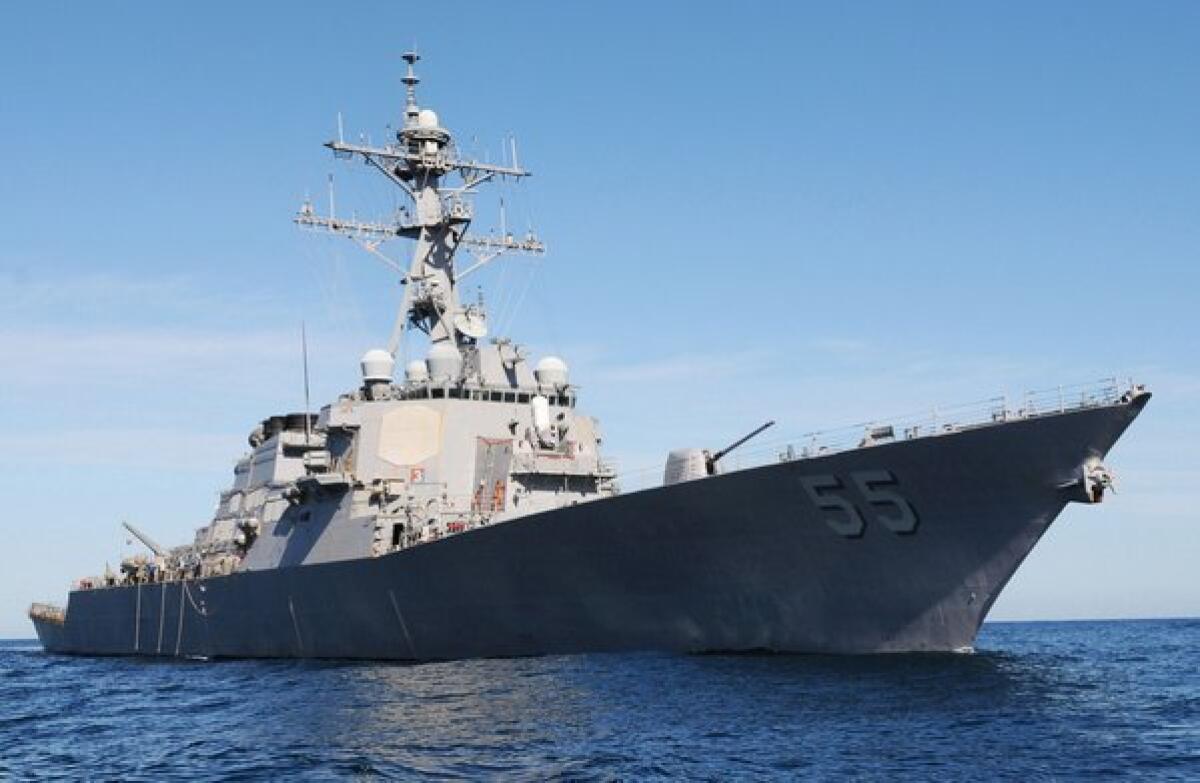Who wins in Syria? Why, the world’s arms makers, of course

- Share via
So you say the Syrians have it coming for gassing their own citizens?
OK, let’s skip that debate, then, and get down to the nuts and bolts: How much is this “measured response” gonna cost?
Call it “Bang for Our Bucks.”
Now, it’s hard to predict what a war will cost. Just ask the Bush-Cheney-Rumsfeld boys; remember their estimates that the Iraq war would, in essence, pay for itself through increased oil revenue and recovered assets?
But we can put a price tag on the U.S. military assets in the area, which consist mainly of the Harry S. Truman battle group in the Mediterranean plus the aircraft carrier Nimitz in the Indian Ocean.
Here’s a quick rundown:
- Two Nimitz-class aircraft carriers: $4.5 billion each. They each carry about 48 F-18s among the roughly 80+ aircraft aboard; the F-18s go for about $55 million apiece.
- Two guided-missile cruisers: About $1 billion each. Carry 50 or so Tomahawk cruise missiles at about $1.5 million per.
- Five guided-missile destroyers: About $1.8 billion each. Carry 50 or so Tomahawk cruise missiles at about $1.5 million per.
- One amphibious assault ship: About $1 billion.
And presumably, the U.S. also has a submarine or two in the area (about $2 billion apiece), also with cruise missiles aboard. But the Navy doesn’t like to talk about where its subs are.
So, if my math is correct, that’s roughly $25 billion to $30 billion worth of U.S. military hardware, all warmed up and ready to go. Skipping over the people, of course; you go ahead, but I’m not going to put a price tag on human life.
(A little perspective, though: We spent about $75 billion on the food stamp program for the poor last year. Which House Republicans think is way too much and are trying to cut.)
But, hey, no one said being the world’s policeman would be cheap.
Of course, Britain and other U.S. allies have forces in the area. As does Russia, which isn’t keen on the push to bash Bashar Assad and apparently thinks that putting its warships in the area will help cool things down. Didn’t anyone in the Kremlin watch “The Hunt for Red October”?
Anyway, say what you will about the morality of chemical weapons and attacking those who choose to use them, there’s at least one group that’s already a winner in this crisis:
The world’s arms manufacturers.
ALSO:
On Syria, let’s be clear: What we’re about to do is go to war
Chemical weapons and Syria: How do you deter a desperate despot?
Follow Paul Whitefield on Twitter @PaulWhitefield1 and Google +
More to Read
A cure for the common opinion
Get thought-provoking perspectives with our weekly newsletter.
You may occasionally receive promotional content from the Los Angeles Times.










